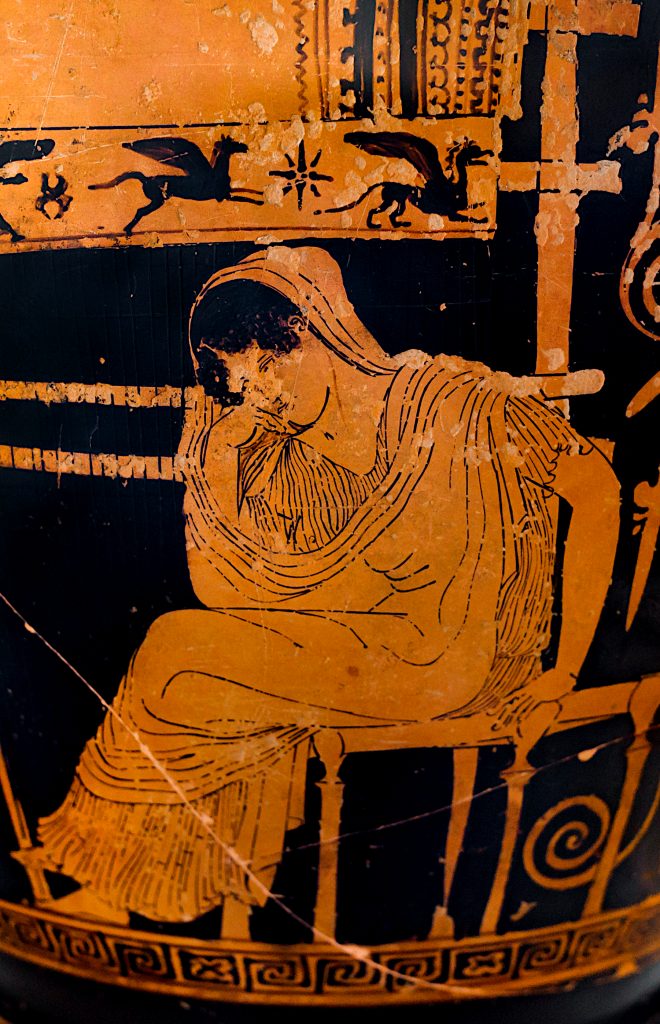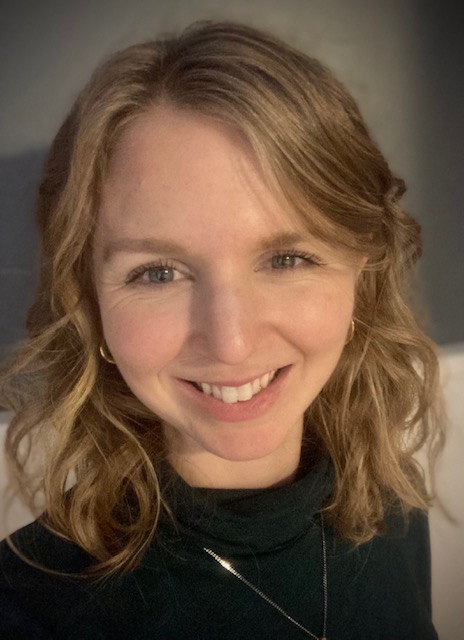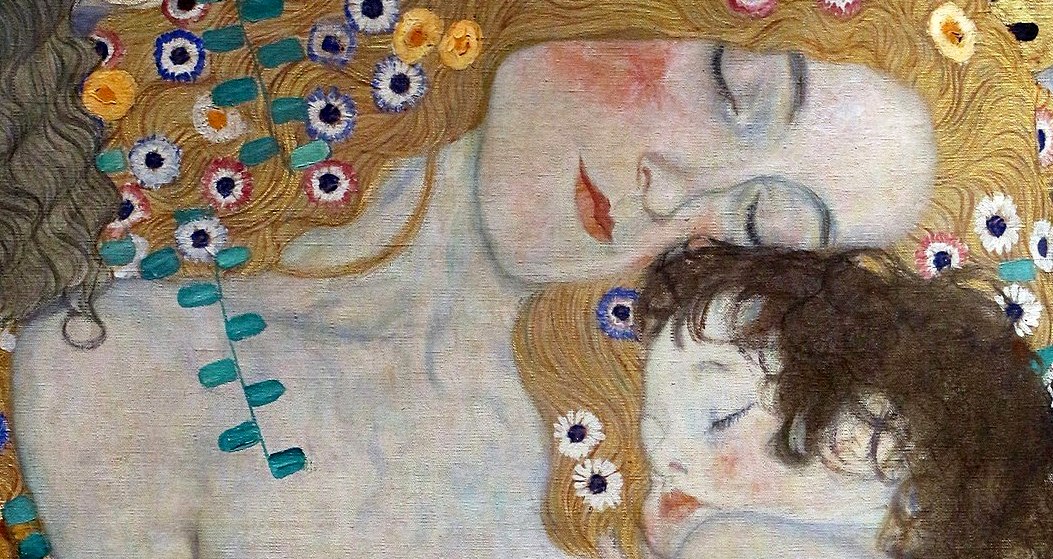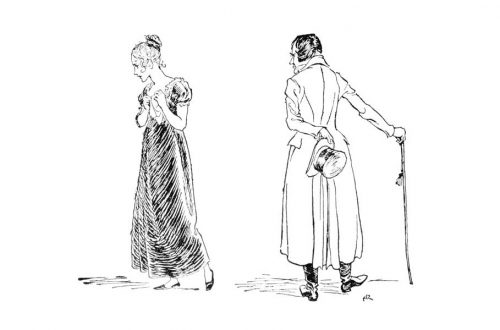by Ellie Peters
I didn’t know how unprepared for motherhood I was. The nine months spent waiting for my first baby were so magical that it never occurred to me that the business of raising children would be so uprooting.
The pregnancy was laughably easy, the kind you don’t talk about too freely with other moms because it’s hard not to sound like you’re bragging. I was young, full of energy and completely free of the textbook fatigue or morning-sickness. And thus, free to simply soak up the mystery of carrying a brand new human. Surely this — I would think to myself — was the pinnacle of human experience. Surely this was a calling that I was meant for and would thrive in.
And then my son was born. And we entered that endless cycle of feeding, changing, lulling to sleep, dish washing, tidying, laundry folding … followed by the counter-cycle of hunger, soiling, crying, sink overflowing with dirty dishes, house descending into disarray, laundry hamper full again. As quickly as the work was done, it was undone and demanding to be done again.
Every morning, I would watch my husband get dressed, gather his things, and go out into the world for whatever adventures awaited him. I stayed behind with my beautiful baby, nurturing him and tending to that never ending cycle and counter-cycle of work completed and undone.
I loved my baby, but I missed the world. I missed my teaching job and my students. I missed drinking coffee while it was still hot and wine with a friend over lazy late-afternoon happy hours. I missed using my brain and sleeping for more than 3 hours at a time.
The most galling thing was that no matter how completely I poured myself into this work of infant care and maintaining our home, it seemed like there was never any visible pay-off. Sometimes I would look around the house at night and marvel at how it could look so the same, as if my previous 24 hours of labor had accomplished nothing more than keeping everything in a static place.

I imagine that Penelope of Homer’s Odyssey must have felt this way. Literary character though she is, I have found her to be something of a kindred spirit. Our friendship exists across the barrier of fiction and reality and an odd 2500 years, but I see my experience of motherhood reflected uncannily in her story.
It is famous enough to need only a little recounting: the long-suffering queen of Ithaka awaiting the return of her husband, Odysseus. Twenty long years of him gone, seeking glory on the Trojan battlefield and adventure on mysterious islands of Cyclopes and witches. Twenty long years of Penelope staying behind, raising their son, and working to keep their estate and the kingdom intact.
Her situation is far from easy. As if her husband’s absence and the burden of the estate were not enough, year after year, her home is overrun by a horde of unwanted young men, suitors who continually pressure her to choose one of them as a second husband. While they wait on her decision, they devour the resources of the household, abusing the conventions of host and guest with their extravagant feasting.
In the opening books of The Odyssey, Penelope does not appear to have borne these circumstances well. The story opens into a scene of domestic disarray: the unwanted suitors camped out in the hall, quaffing wine, slaughtering an obscene number of livestock, and playing idle games. While the servants endure their insults and the teenage prince Telemakhos sits helplessly in the corner wondering what to do, Penelope herself is absent, sequestered in her upper room weeping for her missing husband. By all appearances, she has relinquished her responsibility for the son and home in her care.
But this image of a passive damsel in distress soon evaporates with a public accusation made by one of the suitors in an assembly of the Ithakan elders:
“High-spoken, intemperate Telemachos, what accusations
You have made to our shame, trying to turn opinion against us!
And yet you have no cause to blame the Achaian suitors,
But it is your own dear mother, and she is greatly resourceful.
…For she holds out hope to all, and makes promises to each man,
Sending us messages, but her mind has other intentions.
And here is another stratagem of her heart’s devising.
She set up a great loom in the palace, and set to weaving
A web of threads long and fine. Then she said to us:
“Young men, my suitors now that great Odysseus has [surely] perished,
Wait, though you are eager to marry me, until I finish this web,
So that my weaving will not be useless and wasted.
This is a shroud for [my father-in-law] Laertes, for when the destructive
Doom of death which lays men low shall take him, lest any
Achaian women of the neighborhood hold it against me
That a man of many conquests lies with no sheet to wind him.”
So she spoke, and the proud heart in us was persuaded.
Thereafter in the daytime she would weave at her great loom,
But in the night she would have torches set by, and undo [her glorious weaving].
So…she was secret in her design, convincing the Achaians.”
— Book II, The Odyssey
Penelope, in short, has been holding the suitors off by leveraging her domestic work against them. By dangling the possibility of marriage before them, yet keeping her father-in-law’s shroud perpetually unfinished, she ensures that she is left unmarried — the wife of Odysseus and the mother of Telemakhos. She also ensures that none of the suitors go on to establish themselves as mature, landed lords with estates of their own–rivals who could challenge Odysseus’ claim to power. As skillfully as the witch Circe lures men onto her island and transforms them to pigs, so Penelope has lured and held the suitors in a state of social and relational inertia. In doing so, she has protected and held in place her own home, ensuring a peaceful (if flawed) place for her son to grow up and an intact (if deteriorating) kingdom for her husband to return to.
The kicker of all of this? She accomplishes it not with overt acts of glory or courage, but by simply and quietly doing and undoing the same 24-hour cycle of work. Weave by day, promise marriage; unravel by night, stave it off. Penelope is almost invisible in this unending cycle and counter-cycle. Looking back at those opening scenes, she is so susummed into the ruse of a passive widow that she practically camouflages into the walls. You would never guess that she was accomplishing anything in a given day. Yet she is the axel around which Ithaka revolves, holding everything in place for the sake of her family with that invisible centripetal force of cycle and counter-cycle.
It was Penelope and her weaving who first taught me that this self-effacing work of ordering and reordering a space for the sake of those you love was not something to fight against.
Once, either very late at night or early in the morning, in those earliest weeks of parenting, I was sitting upstairs in the little upper room of my house, nursing the baby. The wild disaster of a day of infant care was all around me and my son was crying with hunger and exhaustion. I had an audiobook of Lattimore’s translation of The Odyssey rattling in my earbuds, partly to stave off boredom, partly in an attempt to live vicariously through the text that my 11th grade humanities class was reading without me. I listened to that passage, where the suitors in the assembly expose Penelope’s trickery.
And suddenly I saw her face to face with me, as if looking at each other through a glass. We were there together, both in the upper rooms of our homes, unweaving our work in the middle of the night, and preparing to start it all again tomorrow. And I suddenly got this visceral sense that, just as Penelope’s unweaving carries its own meaning and eventual glory when Odysseus finally returns, so my self-effacing work as my son’s mother and the keeper of our home also carried a special purpose that I had discounted.
You see, Penelope has every reason to chafe against her circumstances. As many times as I’ve read The Odyssey, I never get over those final books when she is at last revealed for what she is: a woman with beauty said to rival that of Artemis and Aphrodite and with intelligence that does rival that of her husband, most scheming of the heroes. It always makes me wonder what she might have been in different circumstances. Another Helen, perhaps–the object of the world’s admiration and ambition, wielder of kingdoms and armies. Scrappy little Ithaka is far too small for the force of her personhood. But the thing is, I’ve never gotten the impression that Penelope wants anything more than it. Ithaka and Odysseus are her world. What she wants is her home restored and her family together, and she seems to embrace that as a calling worthy of her capabilities.
Everyone says motherhood gets easier with time. And it does! Sleep returns. The babies grow older and learn to feed and dress themselves and play independently for spurts of time. And you start to find your own self again among the mental and physical furniture of running a family. But the cycle of (un)doing one’s work (or allowing it to be undone) remains a constant.
These days for me, it looks more like my 6-year-old son and 4-year-old daughter dumping the neatly organized bins of Legos and PlayMobil and Magnatiles together into one big mass on the living room rug. I sit on the couch and watch as their natural creativity drives them to create vividly detailed worlds and games, imaginative spaces that demand the mixing of all three categories of toy. I wouldn’t stop them for the life of me.
But I have to admit that actualizing their creative energy requires the unraveling of my own. Those bins of toys dumped out were carefully wrestled into place just yesterday with an hour of precious carved-out time. They needed me to order their playthings so that their little minds, starting from a place of calm organization, could create. And now their creativity needs me to let them undo my work.
Set to order, watch it unravel. Set to order, watch it unravel. Repeat. Like rows in a newly-woven panel of fabric pulled out. Like suitors trying one more time to win a queen’s hand. Like Ithaka kept preserved, prevented from fraying too much before the king returns.
I believe there’s something enduring about this cycle of ordering and reordering. Ancients as old as Homer understood that. We humans are a piece of work. With one side of our nature, we yearn to stretch past the bounds of order towards creativity, flourishing, adventure. We all want more–which is to say, we long for the battlefields of Troy with the prize of Helen at the end. But we are also ordered, homely creatures and we need Ithaka, too. That little backwater that is not majestic or glorious and carries no promise of personal accomplishment, but is nevertheless ours. And tending Ithaka requires that we sometimes–often–relinquish our own glory and thriving and surrender to the repetitive work of ordering and reordering. And so Penelope unweaves her shroud. And so I allow my wild little creations to undo my clever home organization systems.
I still chafe at that tension sometimes. I cherish my children and my marriage and home, but part of me still longs for Troy. My husband says I have a restless spirit. And as much as I find myself in Penelope’s story, one half of me will always wish I were Odysseus. That is the half that pulled me back into teaching just six weeks after giving birth, not once, but twice. It is the half that even now in my embrace of motherhood, still gets a high off of staying up late to put together lesson plans and tap away at writing projects like this one, that relishes a productive day at work and can’t resist jumping onboard with exciting new professional ventures. But as much as that half of me is responding to real, worthwhile vocations, it is also the half that, by itself, will never be free of its restlessness.
The only cure is home. And so Odysseus comes back to Ithaka. And so I leave the office or the classroom each day and willingly descend back into that loveable tornado of grocery orders and school backpacks and muddy shoes.
It’s chaos. But as I watch my earnest little boy and spirited little daughter light up with laughter, the restlessness melts away. Nothing prepared me for the self-erasing cyclical work of motherhood. But nothing prepared me for the joy and comfort of moments like this either. The dishes may not stay washed and the toys may not stay organized. But that’s okay.
I used to view my vocations outside and within home as two opposing forces that threatened to pull me apart. But they’ve become seamless parts of a whole. It’s taken me a long time to see it, but my home and family are as worthy of a calling, and as meaningful of an adventure as the ones I have out in the world. The requirement that I relinquish myself to tending them makes that more, not less, true. That human longing for Troy can be channeled into caring for those and that which is already yours.
So I have learned to hold my own little private Ithaka close: this well-loved green-painted cottage with old woodwork. Clean but a bit cluttered, filled with the shouts of kids and yowl of cats. I look around it now, this dark evening, with the babies asleep and my husband contently tapping away at his computer, take in the stacks of books in the corners and the winedark remains of tonight’s feast with friends on the dining table.
It is scrappy and imperfect, and requires every ounce of love I can give it. And on most days, after pouring myself into tending it, you can’t tell that I’ve actually accomplished anything. But it’s my Ithaka. And that’s something that a hundred Troy’s will never be.
This article is republished with gracious permission from Between Cities: A Journal of Christian Thought. Between Cities is a student-led journal centered at the University of Minnesota and offering a public forum for thoughtful engagement between Christianity and the life of the university.

Ellie Peters makes her home in St. Paul, Minnesota with her husband and two children. She channels her passion for good stories and incarnational human life into teaching, reading, and working at Anselm House, a center for Christian studies. When not occupied with those activities, she can be found mining for beauty in time with her family, knitting, and on long walks along Lake Superior’s rocky shore.
header image: Gustav Klimt, “Three Ages of Woman” (cropped) (public domain).




3 Comments
Jen Balsbaugh
Ellie,
This is absolutely beautiful! Thank you for sharing these thoughts on motherhood.
Kara Jones Murphy
Thank you, Ellie, this is profound and rich. As I newly embark upon this reality I am grateful to now carry these stories and images that you have shared with me.
Matthew briel
Ellie,
Wonderful! Thanks for sharing!